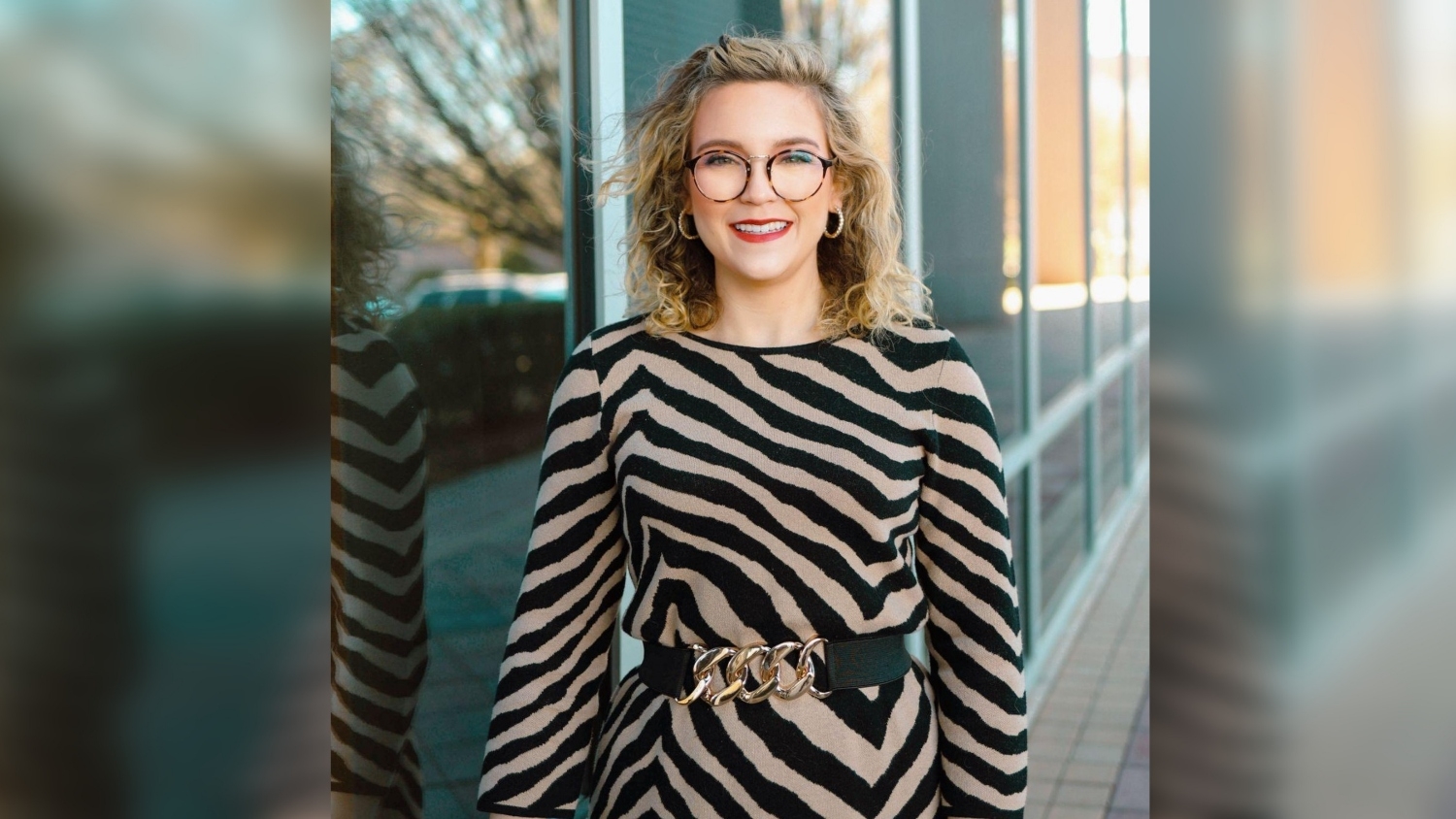Therese Anne Fowler

When Life Imitates Art: The Letter Z was the beginning of many things for best-selling writer (and now producer) Therese Anne Fowler
Note: Therese Fowler was recently named Humanities and Social Sciences 2017 Distinguished Alumna. Read more about the recognition.
It is morning at Aloft on Hillsborough Street in Raleigh, an art- and light-filled hotel conveniently offering a framed view of the iconic Memorial Tower via the lobby window. It is a cool day, one threatening rain and the sky is gloomy. But Fowler is not.
Wearing a gray cashmere wrap that approximates her eye color, she arrives for an interview and smiles easily. With another novel already in draft (set in the Gilded Age) and an adaption of her last novel receiving strong critical and audience reviews, Fowler has reason to be in good spirits. There is a newfound audience and fan base that has discovered Zelda Fitzgerald thanks to Fowler’s creative projects (which also include a televised series bearing her producer credit).
When Fowler turns in search of a coffee, there it is, a physical sign of a labor of love and risk: a subtle, tiny letter behind her left ear. The letter Z. This tiny emblem is a commemorative tattoo, she explains. It heralds the fact that Z: A Novel of Zelda Fitzgerald was a bestseller—her first—right out of the gate.
Later, she adds the tattoo represents something more. It was as if Fowler sensed the voice of her subject throughout the writing of the book. “As if she was there,” Fowler says, indicating her ear. “Zelda was right here, talking in my ear, making sure I got the story right.”
Then she laughs—“No, I don’t mean that literally,” Fowler adds.
Tattoos may be uncomfortable to undergo, but so is the writing process. Fowler wrestles with the exact date the small letter was inked there. “Probably in May 2013,” she guesses. 2013 was a year of appearances and media events surrounding the book release. “I got the tattoo done while I was between some tour events. I was on tour for eight months,” she explains.
(The title, Z, it happens, was Fowler’s own idea. It was also the working title on the manuscript when it sold, she explains. Other titles were kicked around for months; finally, the director of marketing suggested they go with it. This, too, is a piece of pleasing synchronicity for Fowler.)
It so happens that the single letter tattoo is the latest of other, more complex ones. What does it mean—all the ink? Somehow, the two things became intertwined as Fowler wrote, researched and worked her way through the completion of the historic fiction, an account of Zelda Fitzgerald’s early life and marriage to F. Scott Fitzgerald.
Fowler sips coffee and describes how she sought a much more elaborate tattoo while still in the midst of writing the best seller. Also, during that time she had gotten to know some rock climbers, adventurous types, and many of them with tattoos.
“I had never paid attention to them (tattoos) and I was intrigued,” she says. “Once you get one, there’s some kind of strange compulsion to do it again.”
[marketing-quote color=’green’ align=’center’]I was always a writer–of bad poems, essay-like musings, story ideas, and research papers. I just wasn’t writing fiction.[/marketing-quote]
Over the course of writing and editing, she submitted to the tattoo artist’s needle more than once. Her first tattoo is elaborate Japanese script that means, “Each moment, only once.” There is a red emblem that signifies harmony. Now, she was inked. That verb, of course, was meaning-laden.
Book advances are typically modest, and so are sales. As Fowler explains, “I was paid well, right from the start. Well enough to quit my day job, as the saying goes, in part because I sold foreign rights to Souvenir (her first published novel) all over the world.” Fowler appreciates this is great good fortune. Imagine how lucky, she says, to be able to now focus solely upon the work and craft of writing. (She did, however, enjoy her time teaching at NC State.) Her writer husband, John Kessel, is a professor of creative writing and American literature at NC State.
However, Kessel, an award-winning and much-published science fiction writer in his own right, is now “in phased retirement,” Fowler adds. This will mean two notable writers in one household, both writing full time.
So, is it ironic that she has written about Scott and Zelda Fitzgerald, two creatives who also lived together? Zelda’s own ambitions as a writer are well known. Fowler laughs at the suggestion that there is any parallel to her own life. “It is a lot more peaceful in our household for sure,” she says. Beyond their personality differences, Fowler points to the fact that she met her husband as a more mature and stable adult. “Scott and Zelda were so young,” she stresses. “So young.”
Also, her husband “is so established in his career,” Fowler adds.
She was considering entering law school—something that she felt was also interesting. “I could have stayed that course,” she muses, “sociology or law.”
Fowler says while completing her undergraduate degree, she wrote her first creative piece. The short story was modeled after a Robert Heinlein story, about a family taking a trip to the moon. “Fortunately, I managed to show a little ability, and changed the whole course of my future.”
YEARS OF RAPID CATCH UP
In 1997 Fowler had returned to NC State to complete a degree in sociology. She was an adult student, divorced and rearing two young children, ages 4 and 7.
In 2000, she completed her undergraduate degree and entered Graduate School, intending to earn a doctorate. Fowler transferred into the MFA program while it was in its infancy. “There was a steep learning curve for me coming from sociology,” Fowler says.
“I was the only kid on the block who hadn’t read the short fiction of, you know, every literary icon. There were a couple years of rapid catch up.”
But catch up she did. Since completing her MFA, Fowler has been prodigiously writing. She published four works in rapid succession. Those works include the publication of Souvenir in 2008, followed by Reunion in 2009, and Exposure in 2011. Exposure was based in part upon real events that Fowler experienced with her teenage son. It remains an important book to Fowler, and one that resonated with readers and found a following. She says, “It was a pretty good book.”
A Wisconsin public school superintendent wrote online: “Exposure is a worthwhile and relevant tale about the perils of growing up in a modern digital age where the standards of morality are ever changing. Well recommended.”
The book drew critical acclaim but the sales were not what Fowler hoped. She concedes it might have been “under published.”
After the publication of Exposure, Fowler had submitted a draft of a new novel to her publisher before deciding to pull it. (This was not the first time that Fowler made a difficult decision after completing a manuscript. She had previously set aside a novel in progress in order to write Exposure.)
Pulling the novel this time resulted from “a bolt out of the blue.” While on the front porch overlooking a ravine, journal in hand, Foster recalls the moment. “It was late morning in 2011. The sun was streaming.” And then, a random question struck her.
“And I thought, what about Zelda Fitzgerald? I stopped what I was writing, mid-sentence, and wrote what about Zelda Fitzgerald?” She adds, “I was interested in historical fiction, had read it all my life and was kicking around some ideas for such a book when I was struck that day by the thought of writing about Zelda.”
The moment was powerful. Fowler felt there was no denying it. “I had to consider what that was.” Fowler allowed herself to explore the question, to explore the deeply controversial, often maligned, Zelda as a subject. She began preliminary research, although ambivalent about the idea of writing about the woman she (wrongly) believed Zelda to be. That changed when she learned just how wrong she was.

The Zelda she chose to write about was still young and unformed, on the cusp of becoming the legendary Zelda. As the work developed, the beautiful, talented, and willful Alabama-born belle was still only a teenager.
Fowler set the novel in 1918. Zelda Sayre soon met F. Scott Fitzgerald, and the pair destined to become a Jazz Age golden couple, were on the threshold of adulthood. They would become known both for their co-dependent, doomed lives and their creative talents.
Fowler followed the thread of their lives, tracking the relationship through until F. Scott’s sudden death in 1940. She cast Zelda in a different vein than previous writers had; Zelda as a creative force, unfairly eclipsed by Scott’s enormous talent. “She had writing talent,” says Fowler, “but I would never say she was as good as he was–though she might have become so if she had been able to further develop her talents.” Fowler mentions that Zelda “was a highly skilled ballet dancer and painter, too.”
Written in first person, the book is unlike other works that had depicted Zelda as an object of scorn or pity, and a mad impediment to Scott’s greater genius. Told in Zelda’s own voice, Fowler fleshed out a woman and talent worthy of a different treatment, and deserving of a far kinder fate. (The book ends before Zelda died March 11, 1948, while a patient undergoing treatment at Highland Hospital in Asheville, NC.)
At the completion of the draft, Fowler believed this departure from her prior novels “was going to save my career or end it.”
By October of 2013 the novel was out, and almost immediately it was clear the novel was going to catapult Fowler to a larger stage herself. Declining to read the reviews, she asked her agent and editor to read them first and “would see if she wanted it in her head or not.”
Fowler was finding a growing genre of novels inspired by famous figures. Before writing Z, she read Nancy Horan’s book, Loving Frank, concerning Frank Lloyd Wright’s affair, and later Paula McLain’s about Hemingway’s first marriage to Hadley Richardson. These had helped serve as “an example of historical biographical fiction, and helped me feel there was perhaps a market for what I was attempting as well.”
Her new work was not inventing characters whole cloth, but creating a fictional account around real people and the events of their lives.
Also, Fowler’s novel was part of a larger Fitzgerald revival, coinciding with the much-anticipated release of Baz Lurhmann’s remake of The Great Gatsby. Fact-based fiction held commercial and literary appeal: as it happened the timing for Z was ideal. The Fitzgerald legend was so oversized and the carnage of their mutual tragedy sufficiently large for many writers to draw upon, parsing through the wreckage of the Lost Generation. Within a very short time period, it was obvious that Z was a hit. The work had elevated Fowler’s career.
Meanwhile, Fowler’s friend and colleague Lee Smith published Guests on Earth in October 2013. (Smith’s haunting book, also a first-person historical fiction, concerned the tragic events at Highland Hospital where Zelda had perished.) Smith’s book also enjoyed strong reviews and critical success.
More Fitzgerald-fueled books were to come. In 2013 R. Clifton Spargo published Beautiful Fools: the Last Affair of Zelda and Scott Fitzgerald. In 2015, Stewart O’Nan depicted Scott Fitzgerald’s turn as a Hollywood script doctor, in part to subsidize Zelda’s treatment at Highland Hospital, in West of Sunset. It was here in Hollywood that Scott died.
“If Scott had not been drinking,” Fowler muses. She talks about his brilliance and Zelda’s, and what might have been. “Had Hemingway not been an influence, had Scott not been weak,” Fowler continues, and pauses. “Aren’t all writers different versions of crazy? Different flavors? I’m a pretty benign person as writers go.” Later, she writes an email explaining that she saw herself “in Laura Ingalls Wilder and as Jo in Little Women.”
AN ADAPTATION
The best-seller status of Z afforded Fowler opportunity to focus solely upon her writing. Yet more good news was to come when actor Christina Ricci read Fowler’s novel and indicated her interest in getting the book adapted. Amazon Studios was interested in acquiring the rights to the book for a television series. “Amazon is attached to a lot of original work that no one else is doing, like Manchester by the Sea,” Fowler points out.
Fowler became a producer on the Z pilot and series when Amazon Prime green-lighted the adaptation.
“It was incidental to the way my agent put together the deal,” she explains. As she describes it, “You don’t see it (producer credits) happening in film the way you do in television for adapted works. You start as a producer; it’s almost in name only. I had a consulting role up front.”
Fowler didn’t have the right to approve the script but did participate. “I’m not J.K. Rowling,” Fowler laughs. She consulted with the writing team before they produced the first season. “I made contributions up front. (It was) a rewarding thing.”
There were few conditions. “Amazon only said, ‘Do it with integrity.’”
An example was in an episode in which Zelda and Scott visit a Harlem speak-easy. “One of the writers was interested. Obviously the Harlem renaissance was happening. Do you think Zelda and
Scott would have realistically been interested at that time?” Fowler agreed they likely would have been, and the scene was included.
Fowler was able to be present for filming the pilot and was present when they were shooting season one. The costumes were meticulous. The lushly realized Biltmore hotel suite where the Fitzgeralds honeymooned was created in a studio. There was the bathtub where the couple took leisurely baths. It was a real, working bath tub with working spigots. The mosaic tile was set. It was a pitch-perfect scene.
“They also recreated Max Perkins’ office, with the same attention to detail, the same deal.” Fowler was struck by this, saying while on set she noticed and read a letter in a typewriter, realistic in voice, only visible to the actors. “There is a letter in the secretary’s office outside Max Perkins’ office.” These details indicate a level of commitment to the production, she says.
Fowler marvels at the richly imagined sets and costumes and level of production detail. The premiere event was held in New York City on January 25.
During filming of the first season, Joe Lewis, the executive in charge of the production, told Fowler, “Thank you for making this happen.” She exclaims, “He said that to me!”
Fowler discusses some of the literary perks afforded her by her success. One memorable perk meant a visit to the home of Fitzgerald’s legendary agent Maxwell Perkins extended by Charles Scribner’s granddaughter. “Everyone loves Max. You can’t not love Max. He had some failings, but, well, don’t we all?”
But moral failings are, after all, the substance of many a novel. Fowler tells a story about a recent reader reaction to Z. They pressed for her opinion about Scott Fitzgerald’s true sexuality. She ruminates, hazards an opinion on this, and then, Fowler stops short.
“It’s important to remember how young they (the Fitzgeralds) were,” she stresses.
REVISITING NC’S MOST FAMOUS GILDED AGERS: THE VANDERBILTS
In Fowler’s artistic life, there seemed to be a surprising number of coincidences. The Fitzgerald connections pop up in many personal ways, with unusual synchronicities.
On April 3 this year, she sends an email.
“Do you know that today is the Fitzgeralds’ wedding anniversary? It’s also the date I learned, four years ago, that Z would debut on the NYT best-seller list. Nice symmetry, there. Oh—and here’s a couple of weird but cool coincidences: the date of Zelda’s death is the same as my mother’s; Scott’s first novel was published on the same date that Z was; my husband’s birthday is the same date as Scott’s.”
Fowler’s newest book is written in third person. The subject of the new (as yet untitled work) is Alva Vanderbilt, nee Smith, who married and (scandalously, as divorce was rare) divorced George’s brother, William Kissam Vanderbilt. Again, there are N.C. ties. Biltmore House in Asheville was built by George Vanderbilt, a grandson of Cornelius Vanderbilt. George was Alva’s brother-in-law.
“Imagine,” Fowler muses, “if Jane Austen and Edith Wharton co-wrote a novel about Alva Vanderbilt, it might look something like this one.”
By Fowler’s lights, Alva elevated the Vanderbilt name. Here, again, was a southerner born in Alabama, like Zelda. Also like Zelda, she was fiercely original. She was a suffragette and a free spirit,
quoted as saying, “First marry for money, then marry for love.”
She apparently loved a good party as much as Zelda, reportedly spending $3 million on a masquerade ball.
Fowler says the Vanderbilt book is nearing completion. She completed revisions at the end of April, and the book is slated for publication early next year.
Alva Vanderbilt, touched a bit by scandal, another woman who refused to live in the shadow of fame, seems the perfect next character as imagined by Therese Anne Fowler.
Read more from the Graduate School’s Think Magazine.
Learn more about the master of fine arts in creative writing program.
Download this article as a PDF.
- Categories:


